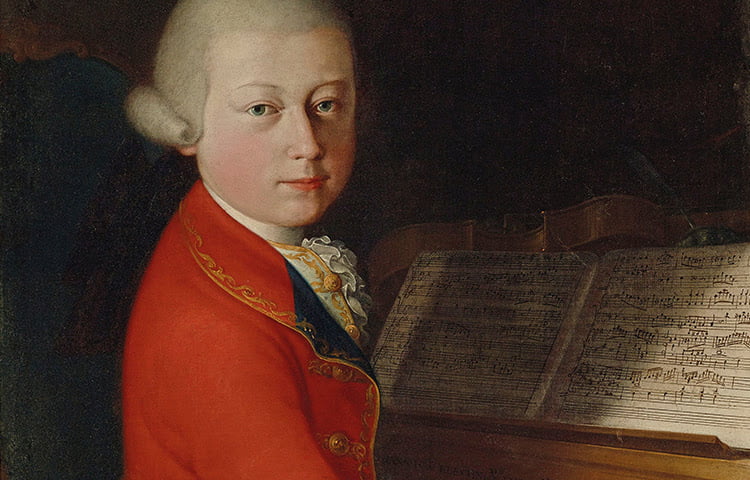London-based opera company The Mozartists has announced a series of webinars, The Operas of Mozart. The five talks see Ian Page, the company’s artistic director and conductor, discussing different aspects of Mozart’s life and work; the series is produced as part of Martin Randall Travel’s Tea Time Talks series.
The five lectures take place on Wednesday afternoons at 4.30pm and last around one hour, including a Q&A session. The topics covered are ‘Nature plus nurture: an operatic childhood’; ‘Towards Idomeneo (1781): the apotheosis of ‘opera seria’; ‘A marriage made in heaven: text and subtext in The Marriage of Figaro’ (1786); ‘Schools for lovers: the Da Ponte legacy’; and ‘Clemency and the pursuit of ‘true opera’’.
Mozart’s operas constitute one of the pinnacles of Western culture, and the composer himself felt that the artform was the genre in which he most excelled. This five-part series, presented by Ian Page and taking place via Zoom, travels chronologically through Mozart’s operatic canon, exploring and contextualising key works, examining the composer’s multi-faceted musical language and offering insights into how he was able to transform written text into psychologically rich musical drama.
The first lecture, ‘Nature plus nurture: an operatic childhood’, took place on 16 June. It challenges the popular notion of Mozart as a uniquely prodigious phenomenon whose unparalleled genius transcended the strictures of time. He was also very much a product of his age, and his early training, in particular his childhood visit to London, paved the way for several remarkable stage works including Apollo et Hyacinthus (1767) and La finta semplice (The Fake Innocent, 1769) written when he was just 11 and 12, respectively.
‘Towards Idomeneo’ was broadcast two days ago. It discusses Mozart’s operatic apprenticeship in Italy, where the triumphant successes of Mitridate (1770) and Lucio Silla (1772) paved the way for the hugely ambitious and powerfully dramatic Idomeneo, which premiered in Munich in 1781 when the composer was 15. This is now widely recognised as Mozart’s first indisputable operatic masterpiece, but it remains undervalued and relatively infrequently performed.
‘A marriage made in heaven’ will take place on 30 June and discusses The Marriage of Figaro, considered by many to be the greatest opera ever written. It set a highly licentious play that had been written in pre-revolutionary Paris just eight years previously, and Mozart and his librettist Lorenzo Da Ponte had to promise the Viennese authorities that they would omit all of the play’s controversial political content. Mozart, though, knew that a story could be told with more than words.
‘The School for Lovers’ (to be broadcast on 14 July) was the original title for Mozart’s third and final collaboration with librettist Da Ponte, Così fan tutte (Women Are Like That, 1790). The plot of this most misunderstood of Mozart’s operas has often been dismissed as trivial and artificial, but the searing intensity and emotional honesty of Mozart’s score offers lessons that only the most resolute of students can stomach.
The last lecture in the series, ‘Clemency and the pursuit of ‘true opera’’ (21 July), considers Mozart’s final two operas, The Magic Flute and La clemenza di Tito (The Clemency of Titus). Both premiered in September 1791, fewer than three months before the composer’s untimely death. The former is the greater and more popular work, but the latter provides an equally fitting conclusion to the composer’s operatic legacy, focusing with a deceptively rarefied and autumnal simplicity on the themes of love, compassion and forgiveness that imbued the composer’s entire operatic output.
The full webinar series costs £65 and you can register via Martin Randall Travel’s website. All five lectures will be available for viewing for eight weeks after the last episode has streamed.
Image
Learn all about The Operas of Mozart with this series of webinars from The Mozartists’ Ian Page.

